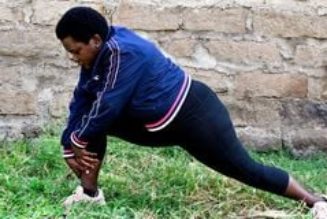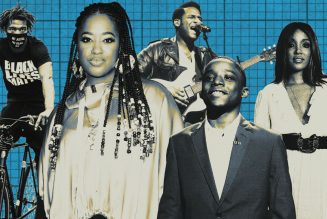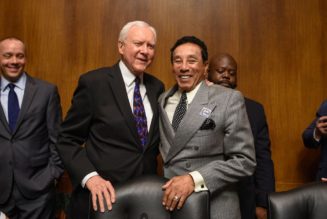Profiles
Rose Mwebaza: ‘God’s gift’ at Unep leadership
Friday January 19 2024

Dr Rose Mwebaza is the Unep’s Regional Director and Representative in Africa. PHOTO | POOL
Dr Rose Mwebaza walks a tightrope. As Unep’s Regional Director and Africa Representative, she oversees 54 countries, positioning the continent globally in all geopolitical conversations. She’s no stranger in deeply carpeted rooms with heads of state and ministers discussing science and the environment and negotiating policies.
A high achiever, Dr Mwebaza has always known anything but being at the top; she is the top student in her country in high school, the first draft law student in her year at Makerere University and the best law student to graduate in her class.
She somehow discovered to turn academia into something she did, a verb: Master’s Degree, International Comparative Law, University of Florida, PhD in Environment and Natural Resources Governance from Macquarie University, Australia, professor of law and dean at Makerere University at only 29.
Often, she is the only black person and the only woman in rooms owned by men. “It takes a lot of self-mastery and self-awareness to occupy those spaces, to sit in them and bring your best self every day.” She has done all these while raising a daughter by going everywhere with her. A unique brand of motherhood-on-the-move.
I’m always fascinated by the journey more than the destination, you know? So, I’d like to know how you ended up here, running important things at the UN. What did it take?
It’s an interesting question. I set out on a journey without knowing the destination but was open to the possibilities.
When I was in law school, I emerged at the top of my class, and usually, law firms would come and choose the best students and turn them into great practising lawyers who became powerful, wealthy advocates. I wasn’t interested in that.
I wanted to support communities that didn’t have money to pay for proper legal services. So, I turned down every offer to join a law firm and decided to teach because teaching offered the flexibility to do pro-bono work. I taught at Makerere University.
By 29, I was a dean and a professor of law. During that time, I was also doing pro bono volunteer work, working on land and property rights for people who couldn’t afford legal services. I built a network, initially across East Africa and then globally. We set up the Uganda Land Alliance, which encompassed all organisations that wanted to work on land issues to promote and organise our justice systems relating to land.
Then, we set up the Kenya Land Alliance and the Zambia Land Alliance. It grew into a pan-African organisation. I understood that land was not just property; it defined people’s cultures and systems of organisations so that, for instance, pastoralist communities didn’t move around aimlessly.
Theirs is an organised structure of mobility which is organised that way for a reason. I felt this was not captured in the Western laws designed for our countries. This work made me understand that it’s about people’s ecosystems, and that’s how I got into the environment sector. How do we protect the environment in which these communities live?
What drew you to the law, anyway? With your brains, you could have done anything with your life.
I was the best [academically performing] student in Uganda, from high school to university. I was also the number one draft for law school and the best leaving the school. I went to law school simply because I was the best student in the country.
What are the disadvantages of being tops all the time?
People always expect you to succeed. I was a well-behaved child who also performed well in school. I was either a head girl or a prefect. At home, I was raising my siblings. This raised a lot of expectations. I grew up before my time. I don’t think I was ever carefree and free-spirited like a child. I was always responsible. This can be a burden because then you’re the carer, the nurturer, the one who makes sure everything and everyone is okay, but reflecting now, as an adult, people often don’t think that the carer, the nurturer, the one who gives, also needs caring and nurturing. So, it can be draining in many ways.
How was your childhood?
It was a great childhood. My parents couldn’t have children for 20 years. They were married on August 28, 1954, and my mother had nine miscarriages over the two decades before getting us: my elder brother, myself, and my younger sister. Because of this, we were loved and valued, and we felt it. Our parents always reminded us. My name in Baganda means thank you.
We grew up knowing that we were special children, gifts from God. My mother was big on education, never missed a visiting day, and knew all my friends and their parents and all my teachers. And my father, at a time when men loved from a distance, was a very affectionate, hands-on father. He could have taken on other wives and had other children, but he stuck with my mom.
We had this conversation with her [mom], and I thought, my God, imagine the shame you must have had to deal with, the stigma of being childless. This immense love of being supported built my confidence and conviction that I needed to do something with my life.
On his deathbed, my father said, “I’m so proud of you, my child. I’m so glad I’ve lived to see you grow up and all that.” So, my father’s love, encouragement, and my mother’s love and support were the fuel that brought me here.
What have you ever failed at remarkably?
(Pause) I don’t know if I want to talk about it. (Pause). I had never put a foot wrong; great student, great daughter, the perfect child in every way. So when my marriage came crashing down….that, for me, was my greatest failure because my parents had been married for 54 years, and I had always assumed my life would be just like theirs. That I would have this great family life.

Dr Rose Mwebaza is the Unep’s Regional Director and Representative in Africa. PHOTO | POOL
I thought I had disappointed my parents when my marriage ended because now I was not the perfect child they wanted me to be. Fortunately, my father helped me through this. He said, “You don’t understand, my child. It’s you. I waited for you. What else matters?” I said, “But I thought I’d just be like you and mom and have a great life.” He said, “No, I don’t want you to be like me and your mom. I just want you to be.” That made me let go of that sense of failure.
How did that change you, this sense of failure?
For the first time in my life, it affected my confidence. As a smart person, I should have known better. So, I questioned myself and my sense of judgement. But eventually, it also made me more intentional because, in many ways, I had grown up with a silver spoon, and my life had, in retrospect, so nicely come together up to that point. So, it was probably good to have something to jolt me.
Ten years. Are you planning on trying again?
I have no idea. I just live my life. I have a daughter to think of now. She’s like me; she grew up smart and responsible. She was like a young adult. I was always sad that she didn’t have the constant father that I had because, for me, my father was pivotal.
Because your daughter is almost like, if you are to tell her one mistake to avoid, what would that be?
That it’s okay to fail and make a mistake; it doesn’t make you any less, doesn’t diminish you. It’s part of the journey of life. It’s the human condition. At some point, we all know pain and loss. I told her it was okay because I wasn’t prepared for that.
What are you most afraid of doing now, in this season of your life?
I’m very intentional and specific about what I want to do this season, whether it’s work, family, or friends. I am learning to be okay with not pleasing everybody because I have a bit of people-pleasing in me due to how I was raised. I’m learning that it’s okay to say no, that it’s okay; you don’t have to be everything for everyone all the time.
What percentage would you say your work takes in your life?
Until the summer of last year, my life was my daughter and my work. I long decided I didn’t want anyone else to raise my child. I wanted to do it alone. Everyone who knows me knows my child because I went everywhere with her until she grew up and left the house. She’s 18 now, at university.

Dr Rose Mwebaza is the Unep’s Regional Director and Representative in Africa. PHOTO | POOL
Because of the high demands on my time, I always had my daughter and travelled with her to my office and everywhere else. God works in miraculous ways because she was a calm, quiet child. People would walk into my office, and she’d be sitting there. But then again, I was lucky to do that because I almost started at the top of my career. Most women can’t do it.
I raised my daughter to be independent and self-sufficient so she could care for herself. On this journey, I met many female friends who went out of their way to support me. We call ourselves The Sisterhood. They showed up for me. We’ve done this for each other in the workspace and the world.
Is there a woman you greatly admire who you would like to meet?
Oh, gosh, I hate that question because I admire many women for different reasons. On the top of my mind, I listened to the first female CEO of PepsiCo, Indra Nooyi, tell her story of how you struggle as a high-achieving woman who also wants to have a family. How she could not see her children, how her secretary knew her children more than she did and the decisions you have to make at that level. My job is very demanding, but this woman is operating at another level, running a Fortune 500 company, a global conglomerate, and facing immense challenges.
How tough is it to be a woman at that level?
So, this lady and I were the best candidates from law school, well sought after. During recruitment by a major firm, our competitors were three young men. The recruiter turned to us and said, “The problem we have is you two will probably get married and have children. This job is very rewarding, but it requires all your attention.” Of course, by that point, I had decided I didn’t want to practice law.
My friend stayed on. She became very successful at a young age, but it came at a price, working 16 hours a day. She later got a nervous breakdown and quit at the top of her career.
There are hard choices to make, especially for young women. You’re a young woman at the peak of your life, but you don’t have a family, which is not considered natural. I tell women we must be realistic about this because that’s how we support each other.
Society expects my father to go and get food but doesn’t place the same expectation on my mother. Whatever else we become in life, we are providers and nurturers, which is very hard. And that is what breaks us in the workplace; it’s not the work because we can handle the intellectual demands. It’s the constant fight of my family, child, and time. To succeed as a woman at this level, you need a support system. Your spouse, family, and friends must be your number-one supporters, otherwise, it will not work.
Is it really lonely at the top?
I don’t think I’m at the top, but where I am now, it is still lonely because you have to make many decisions, and a mistake can be catastrophic. It could impact a whole country or a whole set of negotiations. It’s a lot of pressure to make sure you’re doing the right thing. In my position, there are probably three or four people I can talk to who would understand exactly what I’m talking about.
How do you protect and take care of your brain?
That’s very exhausting. These days, I tell people the best moments are when I can sit alone at home doing nothing. I also do a lot of reading because of the nature of our work. I have sat in many places where I’m the only woman or the only black person. And all those dynamics can affect your leadership. Luckily, my sisterhood helps because they are all professional working women.
I’ve always believed in the power of knowledge and education. I belong to a larger diaspora network of black women who support each other. The position comes with many other things: bigotry, sexism, racism, and people can be unkind, and you must have self-mastery. You need a strong sense of self-awareness and a support system on the days when people are openly racist or bigoted, and it breaks you down.









